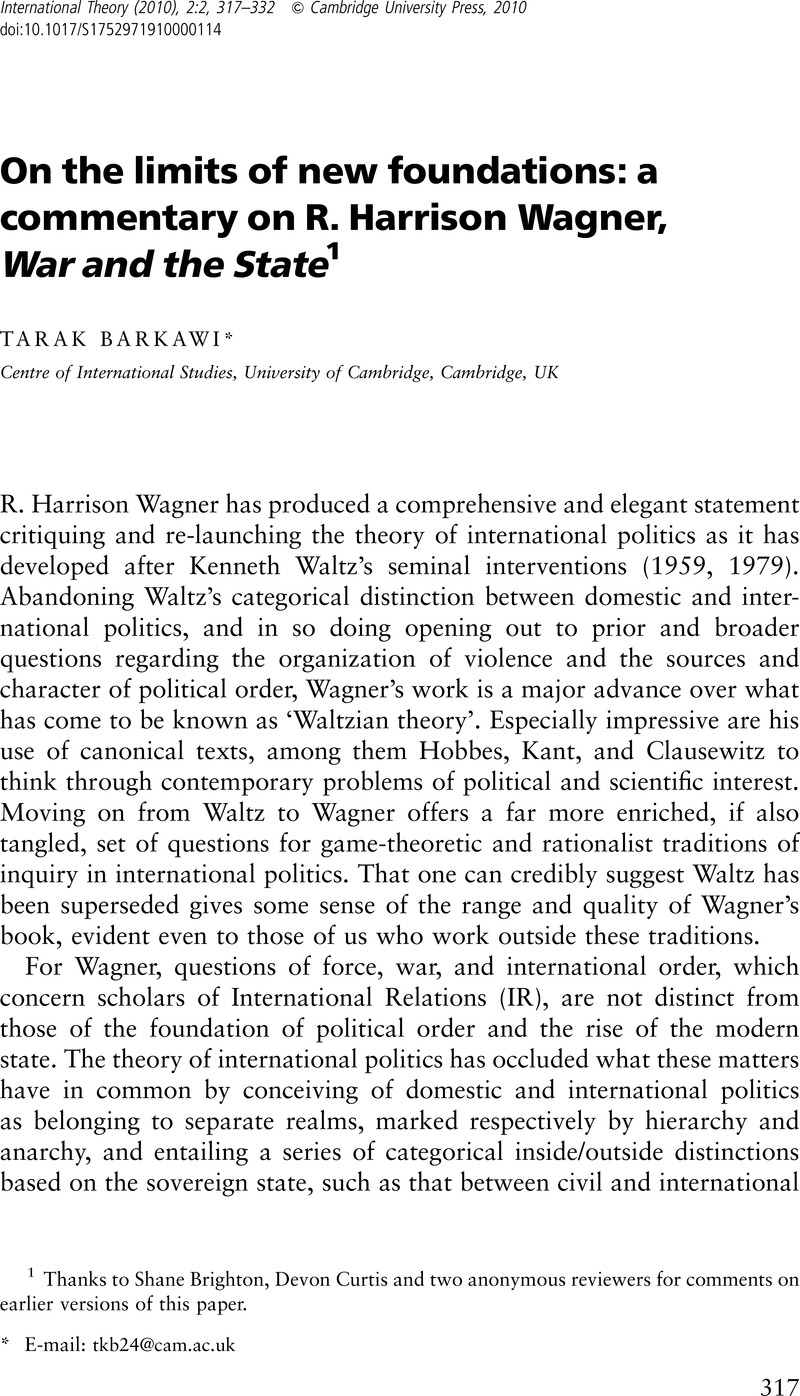Crossref Citations
This article has been cited by the following publications. This list is generated based on data provided by Crossref.
Wagner, R. Harrison
2010.
War and the State: reply to comments.
International Theory,
Vol. 2,
Issue. 2,
p.
343.
MÄLKSOO, MARIA
2012.
The challenge of liminality for International Relations theory.
Review of International Studies,
Vol. 38,
Issue. 2,
p.
481.
Doyle, Laura
2014.
Dialectics in the Longer Durée: The IIPEC Model of Inter-imperial Economy and Culture.
Globalizations,
Vol. 11,
Issue. 5,
p.
689.



